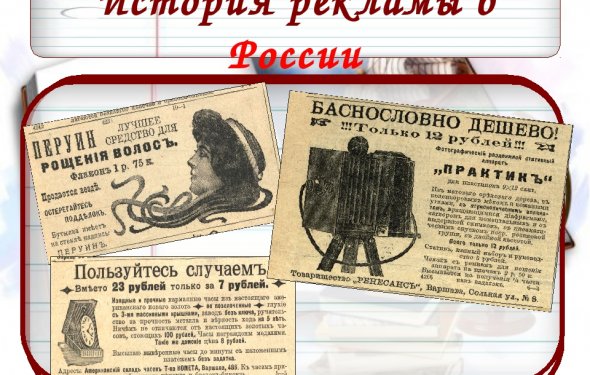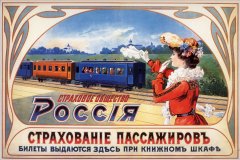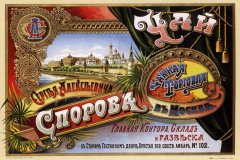Rossi Commercial History

 The ad is the engine of trade. This principle is known in Russia from about X to X. At that time, buyers began to resort to various tricks to sell the goods profitably. In the shops, they hire a zipper who, on the doorstep, said that the goods sold were worthy. Until our time, there were still sweaty boxes. They traded small goods, a box on the shoulder. The merchants went down the streets of towns and collected buyers around themselves or just zevacs with fun.
The ad is the engine of trade. This principle is known in Russia from about X to X. At that time, buyers began to resort to various tricks to sell the goods profitably. In the shops, they hire a zipper who, on the doorstep, said that the goods sold were worthy. Until our time, there were still sweaty boxes. They traded small goods, a box on the shoulder. The merchants went down the streets of towns and collected buyers around themselves or just zevacs with fun.
In the fifteenth century, Government decrees were adopted to read from the Red Crimean on Ivanov Square. Since then, there has been a saying before our days: " To scream all Ivanovsky " . But the royal verbs barely shouted the many merchants who glosed their goods in the square. Among the loud, multi-size crowds were copper-made salesmen and screamed: "The battle! Bear battle! Hot battle! Come on, girls and boys! The most smashed young people smashed the product with poems and songs.
 A long time ago, the traders had a tradition of stealing their goods. He was given non-existent or doubtful dignity. Exaggerated value. They were looking for the origin of the goods. Russi was prestigious to buy goods of foreign production rather than manufactured in the homeland. For example, if spirits, dresses, stockings, are necessarily from France. That was the attitude of the merchants when the sea divas were betrayed.
A long time ago, the traders had a tradition of stealing their goods. He was given non-existent or doubtful dignity. Exaggerated value. They were looking for the origin of the goods. Russi was prestigious to buy goods of foreign production rather than manufactured in the homeland. For example, if spirits, dresses, stockings, are necessarily from France. That was the attitude of the merchants when the sea divas were betrayed.
 PACKGROUND DISTRIBUTION
PACKGROUND DISTRIBUTION
In the Russian press, a newspaper called " The Office " , published at Petra the Great, was launched. Of course, it was more informative, but the announcements were in it, too.
People's pictures or clubs, as they were then called, have played not the last role in the promotion of advertising in Russia. At the beginning of the sixteenth century, these sinister paintings became popular. They were read from King Alexei to the simple people. They reported various information to the media, including advertising.
The advertisements were widely distributed in the nineteenth century. Following the “Vedomies”, the St. Petersburg statements appeared a little later. This paper was published by the Academy of Sciences.
The Moscow Gazette, which was published by the University of Moscow, had a separate genre, the promotion of books. Commercial announcements were more informational.
At the beginning of the nineteenth, Moscow Telegraph was the new news in Russian journalism. This printed publication has played a significant role in advertising and advertising. Later, the popularity of the announcements that were rolled in rounds. Information is emerging. ♪ ♪